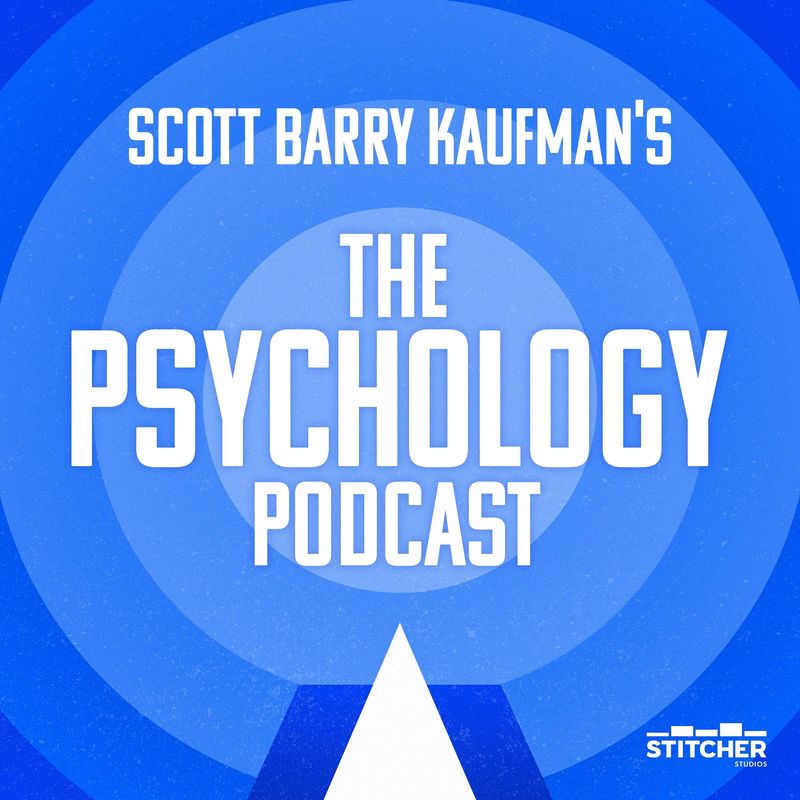
This episode currently has no reviews.
Submit Review- Podcast |
- The Psychology Podcast
- Media Type |
- audio
- Podknife tags |
- Creativity,
- Health,
- Interview,
- Psychology,
- Science & Medicine,
- Self-Help,
- Social Sciences
- Publication Date |
- Nov 21, 2019
- Episode Duration |
- 00:49:56
Today it’s great to have Dr. Rex Jung on the podcast. Dr. Jung is an assistant professor of neurosurgery at the University of New Mexico, and a clinical neuropsychologist in private practice in Albuquerque, New Mexico. A graduate of the University of New Mexico, he has practiced neuropsychology in Albuquerque since 2002. His clinical work now centers around intraoperative testing of patients undergoing awake craniotomy to remove tumors within eloquent brain tissue – work with particular relevance to the study of individual differences. He has contributed to over 100 research articles across a wide range of disciplines, involving both clinical and normal populations, designed to assess brain-behavior relationships. He is the Editor of the Cambridge Handbook of the Neuroscience of Creativity. His work has been featured on CNN, BBC, NOVA, The New York Times, The Atlantic, and National Geographic.
In this episode we discuss:
- Rex’s earlier work on the neuroscience of intelligence
- The distributed brain model of intelligence
- Rex’s investigation of Scott’s brain
- How the brain can compensate for disability
- How our intelligence can change over time
- Limitations of IQ tests for measuring intellectual potential
- The limits of neuroplasticity
- The genetics of intelligence
- The creative brain
- How the neuroscience of creativity is sometimes the inverse of the neuroscience of intelligence
- The “default network” of mental simulation
- The human capacity to “simulate or try out ideas before you buy them”
- The beautiful architecture of the brain
- The neuroscience of genius
- Rex’s work on awake craniometries (neurological testing while a patient is awake and a tumor is being removed)
Support this podcast: https://anchor.fm/the-psychology-podcast/support
Today it’s great to have Dr. Rex Jung on the podcast. Dr. Jung is an assistant professor of neurosurgery at the University of New Mexico, and a clinical neuropsychologist in private practice in Albuquerque, New Mexico. A graduate of the University of New Mexico, he has practiced neuropsychology in Albuquerque since 2002. His clinical work now centers around intraoperative testing of patients undergoing awake craniotomy to remove tumors within eloquent brain tissue – work with particular relevance to the study of individual differences. He has contributed to over 100 research articles across a wide range of disciplines, involving both clinical and normal populations, designed to assess brain-behavior relationships. He is the Editor of the Cambridge Handbook of the Neuroscience of Creativity. His work has been featured on CNN, BBC, NOVA, The New York Times, The Atlantic, and National Geographic.
In this episode we discuss:
- Rex’s earlier work on the neuroscience of intelligence
- The distributed brain model of intelligence
- Rex’s investigation of Scott’s brain
- How the brain can compensate for disability
- How our intelligence can change over time
- Limitations of IQ tests for measuring intellectual potential
- The limits of neuroplasticity
- The genetics of intelligence
- The creative brain
- How the neuroscience of creativity is sometimes the inverse of the neuroscience of intelligence
- The “default network” of mental simulation
- The human capacity to “simulate or try out ideas before you buy them”
- The beautiful architecture of the brain
- The neuroscience of genius
- Rex’s work on awake craniometries (neurological testing while a patient is awake and a tumor is being removed)
Support this podcast: https://anchor.fm/the-psychology-podcast/support
This episode currently has no reviews.
Submit ReviewThis episode could use a review! Have anything to say about it? Share your thoughts using the button below.
Submit Review